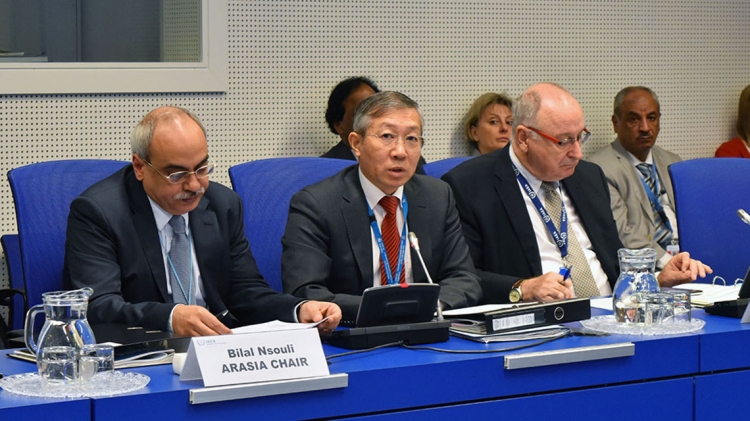The Cooperative Agreement for Arab States in Asia for Research, Development and Training Related to Nuclear Science and Technology (ARASIA) has been working for over the last fourteen years to foster the peaceful use of nuclear technology in ARASIA States Parties. In its continued efforts to enhance effective management of ARASIA projects, and to ensure the application of the results based approach for the ARASIA technical cooperation programme, the meeting of the Board of Representatives for the Cooperative Agreement was held on the margins of the 60th meeting of the IAEA General Conference. The aim of the ARASIA meeting was to discuss and agree on strategic actions to enhance cooperation among ARASIA States Parties.
On behalf of all ARASIA Representatives, the chair of ARASIA acknowledged the IAEA’s contribution over the last sixty years in promoting the peaceful use of nuclear techniques, and improving people’s lives worldwide. He thanked the IAEA for its support to ARASIA over the last fourteen years and emphasized the important contribution of the cooperative agreement to sustainable social and economic development in the region.





